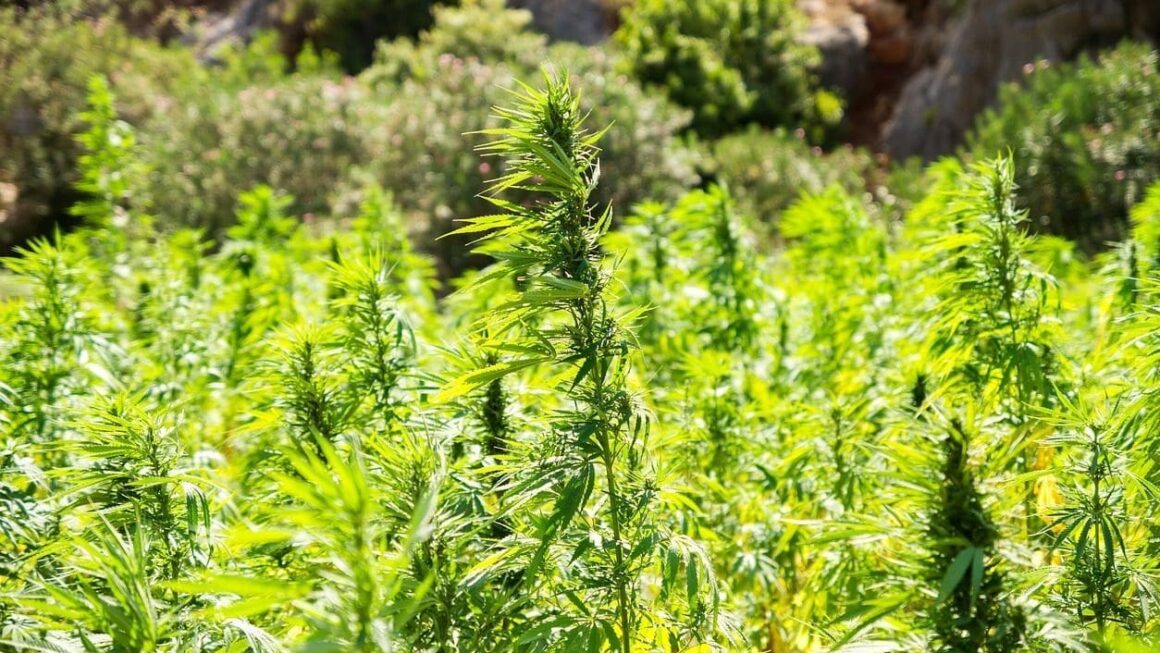The Trump administration is asking a federal court to dismiss a lawsuit from a Washington, D.C. hemp business challenging the federal government over a congressional budget restriction that prevents local officials from establishing and regulating a retail marijuana market.
About three months after Capitol Hemp filed the suit in U.S. District Court for the District of Columbia, the Justice Department on Monday submitted a motion requesting dismissal of the case, largely on procedural grounds.
The cannabis company is seeking a declaration from a federal judge that the congressional budget rider doesn’t stand in the way of D.C. adopting legislation to regulate hemp. But DOJ argued that the company lacks standing to pursue the litigation, asserting that the “core of this suit” against the government “takes circuitous aim at federal law.”
“Plaintiff asserts that provisions of federal appropriations law are ambiguous and require interpretation by this Court, and this ambiguity, it claims, is the proximate cause of two injuries, namely, a pending civil action against them, and confusion on the part of the District,” the motion, signed by U.S. Attorney Jeanine Pirro, says. “Neither of these alleged harms is sufficient to establish standing in this suit, however. Nor can these harms reasonably be traced to either the Appropriations Act or actions by the United States.”
At the center of the lawsuit is the so-called Harris rider, a longtime ban blocking Washington, D.C. from creating a system of regulated adult-use marijuana sales. It’s named after Rep. Andy Harris (R-MD), who was behind the initial ban in 2014. It was renewed last year after earlier efforts to remove the longtime provision. And it was also retained in the base of a pending appropriations measure.
Capitol Hemp asked the court to declare the language of the Harris rider “unconstitutionally vague” because it employs the term “tetrahydrocannabinols derivative,” which the company asserts is “lacking any established statutory definition or limiting principle.”
But the administration is pushing back, advising the court that “the Appropriations Act is neither the cause of action nor is it used as a basis for the suit against Plaintiff, and any declaration by this Court would not compel the District—a third party not before the Court—to enact Plaintiff’s preferred legislation.”
Back in June, the hemp business further said that the federal appropriations restriction’s reference to “any Schedule I substance…or any tetrahydrocannabinols derivative” is “ambiguous and unworkable” when read in conjunction with D.C.’s Controlled Substances Act.
The situation, the complaint says, “creates an ambiguous and unworkable standard that prevents the District from determining which substances it may lawfully regulate.”
Specifically, Capitol Hemp’s challenge said, if the federal restriction is interpreted to include all THC, it “could be construed to bar the District from regulating or even clarifying the status of lawful hemp-derived cannabinoids such as delta-8 THC.”
Again, DOJ rejected the claims.
“Beyond the fatal issues with standing, Plaintiff also fails to identify any statutory or common law cause of action to bring this suit, simply claiming that the suit is brought pursuant to ‘Declaratory Judgment Act,’” the motion continues. “The Declaratory Judgment Act, however, provides a remedy, not a cause of action. And while the plaintiffs may seek declaratory judgments as a form of relief, here, the requested declarations would constitute advisory opinions, because there is no live controversy to redress between the parties before this Court.”
The department did not explicitly address the underlying legal concerns related to the prohibition on D.C. that prevents it from using local tax dollars to implement a system of regulated marijuana sales.
The suit, however, comes as both federal and state lawmakers increasingly move to crack down on markets for intoxicating hemp products, which can sometimes contain as much psychoactive THC as state-regulated marijuana products. The situation—which many have called a loophole resulting from the 2018 Farm Bill’s legalization of hemp nationwide—has raised broad public health concerns, in large part because the products are often untested and easily available to minors.
Meanwhile, on Wednesday Sen. Rand Paul (R-KY) cautioned that the cannabis policy movement has “swung hard on the prohibitionist side” amid the ongoing debate over intoxicating hemp products. And he worries that, if things go awry, the hemp market could be decimated “within the next two weeks.”
Paul also recently filed a standalone bill that would go in the opposite direction of the hemp ban, proposing to triple the concentration of THC that the crop could legally contain, while addressing multiple other concerns the industry has expressed about federal regulations.
The senator introduced the legislation, titled the Hemp Economic Mobilization Plan (HEMP) Act, in June. It mirrors versions he’s sponsored over the last several sessions.
Rep. Andy Harris (R-MD), who championed the hemp THC ban in his chamber’s version of the agriculture spending legislation, told Marijuana Moment that he wasn’t concerned about any potential opposition to the hemp ban in the Senate—and he also disputed reports about the scope of what his legislation would do to the industry.
The Congressional Research Service (CRS) released a report in June stating that the legislation would “effectively” prohibit hemp-derived cannabinoid products. Initially it said that such a ban would prevent the sale of CBD as well, but the CRS report was updated to exclude that language for reasons that are unclear.
The hemp language is largely consistent with appropriations and agriculture legislation that was introduced, but not ultimately enacted, under the last Congress.
Hemp industry stakeholders rallied against that proposal, an earlier version of which was also included in the base bill from the subcommittee last year. It’s virtually identical to a provision of the 2024 Farm Bill that was attached by a separate committee last May via an amendment from Rep. Mary Miller (R-IL), which was also not enacted into law.
A leading alcohol industry association, meanwhile, has called on Congress to dial back language in the House spending bill that would ban most consumable hemp products, instead proposing to maintain the legalization of naturally derived cannabinoids from the crop and only prohibit synthetic items.
Wine & Spirits Wholesalers of America (WSWA) President and CEO Francis Creighton said in a press release that “proponents and opponents alike have agreed that this language amounts to a ban.”
Separately, key GOP congressional lawmakers—including one member who supports marijuana legalization—don’t seem especially concerned about provisions in the bill despite concern from stakeholders that it would put much of the hemp industry in jeopardy by banning most consumable products derived from the plant.
—
Marijuana Moment is tracking hundreds of cannabis, psychedelics and drug policy bills in state legislatures and Congress this year. Patreon supporters pledging at least $25/month get access to our interactive maps, charts and hearing calendar so they don’t miss any developments.![]()
Learn more about our marijuana bill tracker and become a supporter on Patreon to get access.
—
Jonathan Miller, general counsel at the U.S. Hemp Roundtable, told congressional lawmakers in April that the market is “begging” for federal regulations around cannabis products.
At the hearing, Rep. James Comer (R-KY) also inquired about FDA inaction around regulations, sarcastically asking if it’d require “a gazillion bureaucrats that work from home” to regulate cannabinoids such as CBD.
A report from Bloomberg Intelligence (BI) last year called cannabis a “significant threat” to the alcohol industry, citing survey data that suggests more people are using cannabis as a substitute for alcoholic beverages such a beer and wine.
Last November, meanwhile, a beer industry trade group put out a statement of guiding principles to address what it called “the proliferation of largely unregulated intoxicating hemp and cannabis products,” warning of risks to consumers and communities resulting from THC consumption.
Read DOJ’s response the D.C. hemp lawsuit below:





